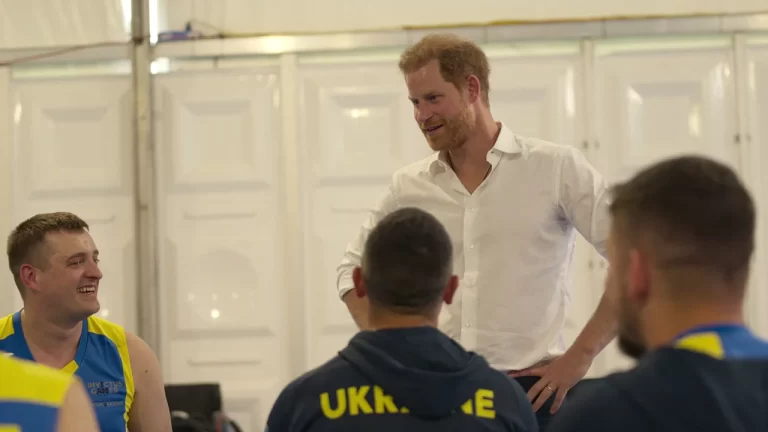There is a small strata of Hollywood deal-making where who’s behind a project – and with whom the programmer gets to align itself – carries more weight than the specifics. That would seem to define Meghan, Duchess of Sussex and Prince Harry’s producing arrangement with Netflix, which bears fruit this week with “Heart of Invictus,” a docuseries about the games devoted to wounded, ill and injured veterans.
The streaming giant’s 2020 partnership with the Duke and Duchess of Sussex clearly appeared to be modeled after its relationship with Barack and Michelle Obama’s production company, Higher Ground. Indeed, the Daily Mail snidely observed that the two agreements were so similar Netflix CEO Ted Sarandos “didn’t bother to supply new quotes for the press release,” basically repeating how thrilled Netflix was to be in business with the couple.
Like the Obamas, who have earned an Oscar and an Emmy for their output, Harry and Meghan appear to be intent on carving out a footprint in uplifting, prosocial programming, or what has in the past been referred to (derisively, at times) as “broccoli TV” – that is, productions that are ostensibly good for you, if lacking in commercial sizzle.
The beauty of a service like Netflix, of course (or other pay-TV enterprises), is that they can afford to bankroll a certain number of projects within that category, realizing that the publicity and prestige from their association with high-profile figures will justify the investment, diminishing the significance of how many people watch.
Enter “Heart of Invictus,” a clear passion project for Prince Harry, who plays a prominent role in the five-part production alongside individual stories culled from the more than 500 athletes representing 17 countries who took part in the 2022 games at The Hague in the Netherlands.
Director Orlando von Einsiedel alternates between the competitors and their personal struggles and the logistics of the games as they resume after being postponed due to Covid, with the added degree of difficulty of the increasingly dire situation in Ukraine.
While the format echoes the Paralympics, the focus on veterans also recalls documentaries such as HBO’s “Alive Day Memories: Home from Iraq,” which showcased military personnel dealing with the aftermath of injuries suffered during the war.
The primary emphasis, though, is on the healing and motivating aspects of sports, with Harry calling the games a demonstration of “the power of the human spirit,” assisting the participants in “being the best version of yourself.”
It’s easy to sound cynical about celebrities lending their names to such noble undertakings, and considerably harder to maintain that posture listening to the athletes from around the world discuss the games’ importance to them and their families, embracing its message of resilience and hope.
“Wheelchair rugby saved my life,” says Julien Allen, a member of the UK team, while South Korean cyclist Na Hyeongyoon speaks of being emboldened to venture out thanks to his involvement, when disabled people in his country tend to “hide themselves away.”
Like the athletes, for whom just competing is a victory in itself, Netflix no doubt saw dividends simply being in business with Harry and Meghan, and lavishing five hours on this material reflects that starry-eyed outlook. Yet even with that disclaimer, there are moments in “Heart of Invictus” where one has to be pretty heartless not to get a bit choked up, and it’s hard to question that its heart is in the right place.
“Heart of Invictus” premieres August 30 on Netflix.
— CutC by cnn.com


